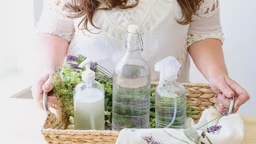Q: Do I need to buy and use any of those septic system additives to help things break down/biodegrade in the holding tank, or is the system okay left to just do its own thing?
Erin Maxx, Portland, Maine
A: Septic system additives, whether chemical or biological, are similar to those wrinkle treatment creams that line store aisles everywhere: They look good, and they sure sound good, but they don’t seem to do much. And, in the end, they may be harmful.
There is just not any evidence that septic additives help a system. They don’t reduce the need for septic tank pumping.
Some additives can actually do harm. Adding treatments to a septic system can actually inhibit the naturally occuring bacteria from doing their job of breaking things down. More than that, some of the additives can severely contaminate the surrounding groundwater and clog the drain field. There are some biological treatments out there that are harmless, but most additives are bad news.
If you’re concerned about how your system is operating, there are some basic rules to follow to ensure proper maintenance.
First, be careful about what goes down the drain: no coffee grounds, wipes, sanitary napkins, grease, oil, hair and the like.
Second, to maintain optimal effectiveness of the system, take care to not compact the soil and surrounding area of a drain field.
Overall, the best thing you can do for a septic system is to have it pumped regularly. If not, sludge will build up and waste water will leave the tank before it has had enough time for solids to settle to the bottom. This will cause drain field contamination and eventual clogging.
How often should you have your tank pumped out? Most experts recommend every two to three years for a medium-sized, well-used cabin, but there are many factors to consider. Your local licensed septic professional can advise you.
Septic systems do eventually wear out, so if you still have concerns, ask your septic pro for an inspection.
And the next time you see or hear about some great new treatment product, chalk it up to effective advertising, but leave the product on the shelf. Your septic system, your pocketbook and your surrounding environment will benefit.










